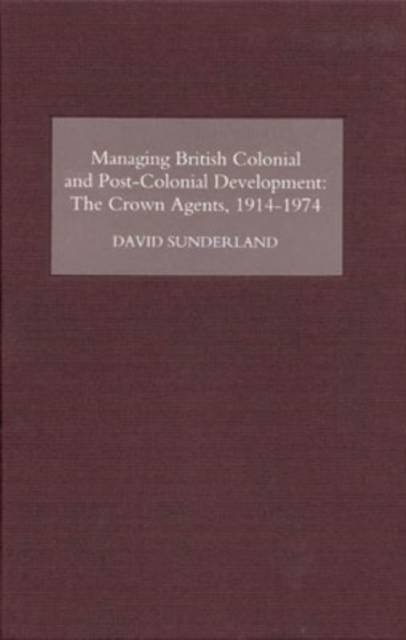
- Retrait gratuit dans votre magasin Club
- 7.000.000 titres dans notre catalogue
- Payer en toute sécurité
- Toujours un magasin près de chez vous
- Retrait gratuit dans votre magasin Club
- 7.000.0000 titres dans notre catalogue
- Payer en toute sécurité
- Toujours un magasin près de chez vous
Managing British Colonial and Post-Colonial Development
The Crown Agents, 1914-74
David Sunderland
Livre relié | Anglais
209,45 €
+ 418 points
Description
A survey of the Crown Agents during a turbulent and eventful period. Britain's Crown Agents' Office is a unique development agency. Until the early 1960s, its clients were colonial governments, and, thereafter, the administrations of dependencies and newly independent countries. As well as purchasing a large proportion of its customers' imports, it provided them with finance and managed their investments. It was thus one of the largest buyers of goods in the UK, and, after, the Bank of England, the country's biggest financial institution.
This book, the sequel to the author's Managing the British Empire: The Crown Agents, 1833 -1914 (Boydell, 2004), examines the Agents' various development roles, including the disastrous venture into secondary banking in 1967 which collapsed in 1974, then the largest bankruptcy in British financial history. The book contributes to a number of current debates in development studies, adds to our understanding of the London financial market and the competitiveness of British industry, and shows how present day aid agencies can learn much from the arrangements of the past.
This book, the sequel to the author's Managing the British Empire: The Crown Agents, 1833 -1914 (Boydell, 2004), examines the Agents' various development roles, including the disastrous venture into secondary banking in 1967 which collapsed in 1974, then the largest bankruptcy in British financial history. The book contributes to a number of current debates in development studies, adds to our understanding of the London financial market and the competitiveness of British industry, and shows how present day aid agencies can learn much from the arrangements of the past.
Spécifications
Parties prenantes
- Auteur(s) :
- Editeur:
Contenu
- Nombre de pages :
- 308
- Langue:
- Anglais
Caractéristiques
- EAN:
- 9781843833017
- Date de parution :
- 21-06-07
- Format:
- Livre relié
- Format numérique:
- Ongenaaid / garenloos gebonden
- Dimensions :
- 168 mm x 235 mm
- Poids :
- 616 g

Les avis
Nous publions uniquement les avis qui respectent les conditions requises. Consultez nos conditions pour les avis.






